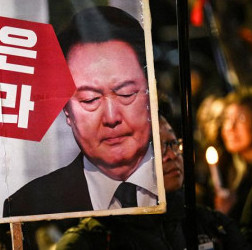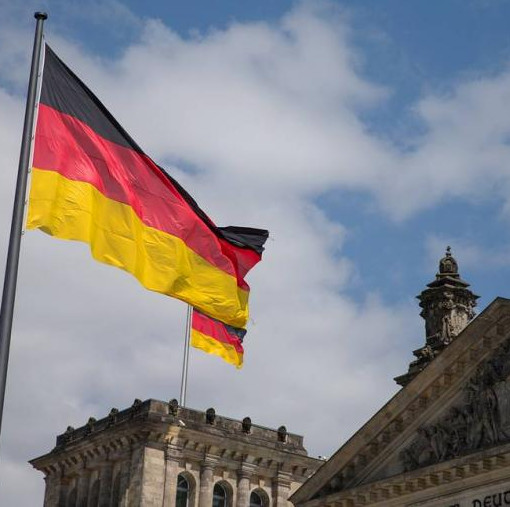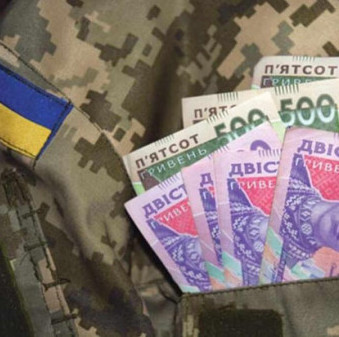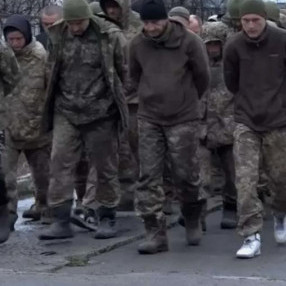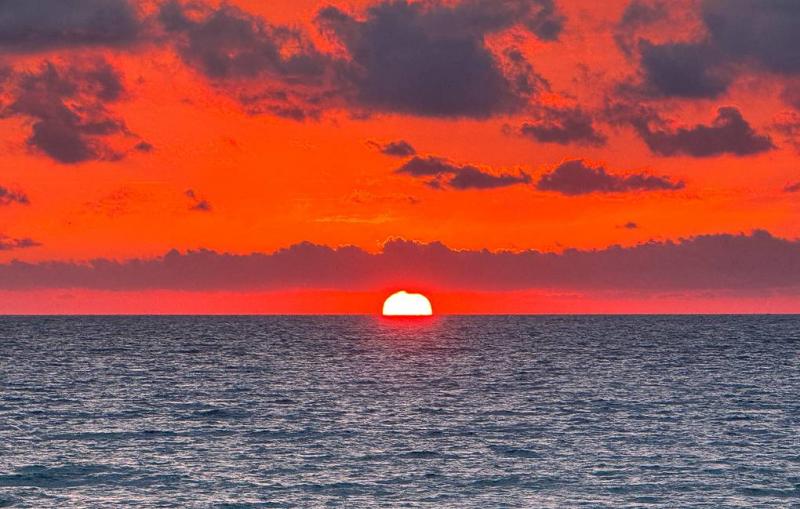
The United Nations indicates readiness to join the Black Sea grain initiative, and Russia lifts its ban on the Taliban. Meanwhile, Europe is making efforts to establish contact with the United States. These stories topped Friday's newspaper headlines in Russia.
Izvestia: UN signals readiness to join new Black Sea deal
The United Nations is ready to join the Black Sea grain initiative once it is revived, the secretariat of the global body told Izvestia. "Soon after the onset of the conflict, we began to work on issues relating to food and fertilizer exports from Russia and Ukraine as well as issues surrounding freedom of navigation in the Black Sea. The UN has continued these efforts with all parties, including cooperation with the United States," Associate Spokesperson for the Secretary-General Stephanie Tremblay said in an interview with the newspaper.
Indeed, the UN has never rejected the Black Sea initiative, Vladimir Kuznetsov, director of the United Nations Information Center in Moscow stated. According to him, the UN team led by Trade and Development (UNCTAD) Secretary General Rebeca Grynspan has been carrying out its job in terms of the memorandum valid through July 2025 diligently.
However, Russia has not held any discussions on the possibility of involving the UN in a renewed Black Sea initiative at the venue. "We are not in any talks with the UN on this issue," Russian First Deputy Permanent Representative to the United Nations Dmitry Polyansky told Izvestia.
Sergey Ordzhonikidze, former United Nations Under-Secretary and ex-Russian Deputy Foreign Minister, expressed doubt that the global organization could contribute to reviving the initiative. "The secretary-general <…> hardly has any leverage," he told Izvestia.
Even as Russia withdrew from the original grain deal, the role of the Black Sea initiative for it should not be underestimated. If that is ever restored, it would help increase Russian food and fertilizer exports. At the same time, if the SWIFT-related issues are resolved, foreign currency inflow in Russia will rise, relieving much of the fiscal pressure on the country, Tigran Meloyan, an analyst with the Center for Mediterranean Studies at the Higher School of Economics, argued. "Also, the initiative has a major humanitarian component to it, as it would enable uninterrupted food supplies to African, Middle Eastern and Asian countries. Therefore, by returning to the deal, Russia could reinstate itself as a reliable global player," he added.
Finally, the matter concerns security in Russia’s southern borders, the stability of shipping in the Black Sea region, the normalization of trade flows, and the restoration of disrupted supply chains. All this would require permanent cooperation between Russia, Ukraine, and the United States with participation from the UN and Turkey, the expert concluded.
Vedomosti: Russia suspends its ban on Taliban activity
Russia’s Supreme Court approved the Prosecutor General’s appeal to suspend the ban on the Taliban movement effective immediately, Judge Oleg Nefedov declared on Thursday. The disclaimer that the Taliban "is designated as a terrorist organization and is outlawed in Russia" has been obligatory for comments on the movement since 2022.
The Talibs fully seized power in Afghanistan in 2021, after US troops withdrew from there (and President Ashraf Ghani fled the country). Russia is among countries that have actively cooperated with the Talib government in the past few years without officially recognizing it, even as the group remains on the lists of terror organizations, Omar Nessar, a researcher at the Russian Academy of Sciences’ Institute of Oriental Studies, pointed out. However, bilateral cooperation has largely been selective, he continued.
Certainly, Moscow is pursuing infrastructure projects in Afghanistan, Nessar informed Vedomosti. And if removing the Taliban from the list of prohibited and terrorist organizations serves as a symbolic step for Russia, it is extremely important politically for the Talibs amid the acute lack of domestic legitimacy, according to the orientalist: "It is obviously aimed at compensating the absence of political recognition for the current government in Kabul, in a situation where the Talibs have taken certain steps toward cooperation in combating terrorism."
For Russia, the Supreme Court’s verdict opens the door for large projects, including the trans-Afghan railway and, perhaps, TAPI, an agreement about the Turkmenistan-Afghanistan-Pakistan-India gas pipeline project, on hold since the 2010s.
But despite the court decision, Russia must comply with restrictive measures introduced by the UN Security Council back in 1999, Sergey Glandin, a partner at BGP Litigation, reminded Vedomosti. Among other measures, Russia must freeze the accounts of individuals on the UN sanctions list, ban their entry to the country, with no exemptions, and block any weapons or military aid supplies to them, he explained.
Izvestia: Europe seeking dialogue with Trump administration
The European Union is aiming to establish contact with the new US administration. On April 17, Italian Prime Minister Giorgia Meloni held talks with US President Donald Trump in Washington. The discussions focused on removing US tariffs targeting EU industrial sectors and finding middle ground in bilateral trade.
Meloni’s visit indicates that the EU has failed to adopt the appropriate approach to the new US administration over the past few months, Sergey Shein, Senior Research Fellow at the Center for Comprehensive European and International Studies (CCEIS) at the Higher School of Economics, believes. "The dialogue could have resulted in commitment not to escalate things further. But I think the current 10% tariff will not be lifted. And, she will try to remove the trade war with the EU from the agenda," he told Izvestia.
Soon after the Italian PM’s visit wraps up, US Vice President JD Vance will travel to Rome for Easter holidays. According to Shein, he may seek to build a network of allies truly loyal to Trump from far-right European politicians. "The Trump administration is interested in dialogue with such an `opposition’ in the hope that this would be the right position in communication with the Europeans," he explained.
Meanwhile, Paris is hosting equally significant talks: US Secretary of State Marco Rubio and Trump’s special envoy Steve Witkoff are visiting the French capital to discuss the Ukraine conflict. British Foreign Secretary David Lammy and Andrey Yermak, who heads the Ukrainian presidential office, joined the high-profile US officials there. While they are formally discussing a "ceasefire," indications suggest even more ambitious plans. "The American side wants to explore the initiative of the `coalition of the willing’ to send peacekeepers to Ukraine. It is unclear if troops would be deployed post-war or during the conflict," Shein said.
Moscow has repeatedly dismissed the idea of putting Western boots on the ground in Ukraine as unacceptable. Russian Presidential Spokesman Dmitry Peskov commented on Thursday that the Kremlin would expect the Europeans to show their commitment for peace efforts, but it can observe that Europe supports the war. News came on Thursday evening that Russian Foreign Minister Sergey Lavrov spoke with Rubio. Russia’s top diplomat confirmed that Moscow is ready to continue working with its American colleagues toward addressing the fundamental causes of the Ukraine crisis.
Vedomosti: Russian, Qatari leaders hold talks in Moscow
On April 17, Russian President Vladimir Putin welcomed Emir of Qatar Tamim bin Hamad Al Thani in the Kremlin. The visit is Al Thani’s first since 2018, when he arrived to attend the World Cup Final.
Following their nearly three-hour long talks, a number of documents in the areas of healthcare, sports, public finance management, and cooperation with Qatar’s sovereign wealth fund to establish a $2 billion joint investment platform were signed.
Commenting on the results of the talks, Kremlin Spokesman Dmitry Peskov told Vedomosti that even though the two leaders "did not specifically discuss the situation in Ukraine," Russia praised the role of Qatar in humanitarian exchanges.
Qatar has maintained the image of a leading mediator in international conflicts, with its ambitions spanning beyond the Middle East, program manager at the Russian International Affairs Council (RIAC) Ivan Bocharov explained to the newspaper. "While the US mostly negotiates global issues, Qatar tries to find its niche in humanitarian matters. Doha’s services here will always be in demand," the expert remarked.
Putin and Al Thani also discussed the situation in the Middle East in the context of the leadership change in Syria, and they might have raised the issue of Iran-US talks on the Iranian nuclear program, as well, Bocharov surmised.
And yet, the two leaders might have concentrated on trade and economic relations between their countries, Murad Sadygzade, president of the Center for Middle East Research, suggested. Despite pressure from the US and the EU, Qatar has not joined the anti-Russian sanctions. Quite the opposite is true, as it has been seeking to unlock the full economic potential of bilateral ties, the expert explained. According to him, "Qatari investment in the Russian economy amounts to around $13 billion. And Russia is a major partner of Doha." Besides, Qatar is looking to join the North-South international transport corridor, which would help it diversify its economy. And the emir might have discussed currency transactions with Russia, the expert noted. Russian businesses could use Qatar as an economic springboard to markets in the Indian Ocean region and Africa, the expert concluded.
Kommersant: Experts weigh in on Brent prices rebound
Spot prices on Brent have recovered the bulk of the decline seen in the first 10 days of April and climbed to as high as $67 per barrel on Thursday, up 15% from local lows. Investor sentiment has mostly improved on expectations that the United States and China could reach an agreement on tariffs, like the majority of other economies for which tariffs have been paused for 90 days.
"A potential China-US dialogue suggests that tariffs could be reduced and that the global economy would face fewer risks," Kirill Bakhtin, chief analyst at BCS World of Investments, told Kommersant.
A remark from Spokesperson for the US Department of State Tammy Bruce that the US president is set to put maximum pressure on Iran and reduce illegal Iranian oil exports to China and other countries to zero boosted investor optimism. "Cutting Iranian oil supplies to international markets would clearly lead to lower supply and, therefore, provide support to oil prices," Bakhtin pointed out.
However, analysts express doubt that oil prices will continue to trade upwards unabated or revisit levels seen before the trade war escalated. "Trade war news and the slower growth in key economies (the US and China) remain a major negative risk for oil prices for this year and 2026," Chief Investment Officer at Renaissance Capital Igor Danilenko remarked.
"We view the OPEC+ deal collapse as a key risk in the alternative scenario. If that breaks apart, oil prices could fall below $60 per barrel," according to Finam’s Nikolay Dudchenko. Finam analysts expect oil prices to average at $70 per barrel this year.
Meanwhile, the latest oil price recovery has had a limited effect on the Russian stock and currency markets. "Oil currently trades below the level envisaged in the Russian budget, especially in ruble terms, which would have a negative effect on major publicly traded commodity companies in the MICEX index," Danilenko cautioned.
TASS is not responsible for the material quoted in these press reviews


